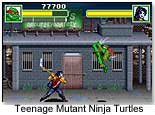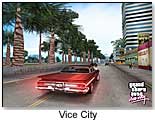
April 4, 2025


A serious gamer can separate a solid game from one designed for a quick buck before they finish level one. According to David Zarnegin, vice president of sales for retail outlet Salem Software, during that first week of release, “if the publisher didn’t do a good job, well, then the customers will trash the game completely and kill sales.” Gamers are almost by definition tech savvy, and armed with the internet, their reviews reach millions of anticipating listeners faster than you can hit “Continue…”
 Licensed properties seem a safe bet, since their audience is built-in, but they also have a built-in stigma. Too many sloppy, repetitive spin-offs have made the customer cautious. Roger Altizer’s review of the Spiderman: The Movie video game is not only the highest ranking movie-based game review currently on the Internet, it’s also an honest one. “One doesn´t expect too much from a game based off of a movie, but that´s slowly changing,” says Altizer. It may not seem like a slow change from an industry stand point, but buying a game is an act of faith—the gamer has to trust the gameplay will be there as well as the license, and that trust will be hard won. A history of bad games casts a questionable shadow over new releases, a shadow the industry must shake to remain on top.
Licensed properties seem a safe bet, since their audience is built-in, but they also have a built-in stigma. Too many sloppy, repetitive spin-offs have made the customer cautious. Roger Altizer’s review of the Spiderman: The Movie video game is not only the highest ranking movie-based game review currently on the Internet, it’s also an honest one. “One doesn´t expect too much from a game based off of a movie, but that´s slowly changing,” says Altizer. It may not seem like a slow change from an industry stand point, but buying a game is an act of faith—the gamer has to trust the gameplay will be there as well as the license, and that trust will be hard won. A history of bad games casts a questionable shadow over new releases, a shadow the industry must shake to remain on top.
 Gamers read the shelf. While the license is what draws them in, it’s the publisher that helps them decide whether they should hazard their $40 dollars on one game, or another. “If a company doesn’t have a good reputation to begin with, the audience will be hesitant,” says Zarnegin, who noted that in his experience, Electronic Arts has the best reputation, and their James Bond franchise is the strongest around. James Bond has existed since the 60s, but it wasn’t until nine years ago that the license became one of the hottest in video games, with Goldeneye for N64 the game that ignited the phenomenon.
Gamers read the shelf. While the license is what draws them in, it’s the publisher that helps them decide whether they should hazard their $40 dollars on one game, or another. “If a company doesn’t have a good reputation to begin with, the audience will be hesitant,” says Zarnegin, who noted that in his experience, Electronic Arts has the best reputation, and their James Bond franchise is the strongest around. James Bond has existed since the 60s, but it wasn’t until nine years ago that the license became one of the hottest in video games, with Goldeneye for N64 the game that ignited the phenomenon.
 What builds a good reputation is mainly gameplay, with everything else at a distant, but crucial second. Gamers take note of how many games are in a franchise, and not just because they’re always looking for the next thrilling thing, but because multiple titles show the franchise has been successful, and therefore worth taking a chance on. Beyond that, gamers notice the same things in games that they do in movies: plotline, visuals, soundtrack, characters, cinematography, and script.
What builds a good reputation is mainly gameplay, with everything else at a distant, but crucial second. Gamers take note of how many games are in a franchise, and not just because they’re always looking for the next thrilling thing, but because multiple titles show the franchise has been successful, and therefore worth taking a chance on. Beyond that, gamers notice the same things in games that they do in movies: plotline, visuals, soundtrack, characters, cinematography, and script.
 Video games are becoming more closely tied with Hollywood than ever before. Konami has moved its base of operations from Japan to Los Angeles to take advantage of the talent there, including Kyle Cooper, who made cinema sequences for Konami’s Metal Gear Solid 2 Sons of Liberty. Together they made sure everything from music to lighting to camera angles worked together to give the game just the right feel. Voice talent is also crossing over from Hollywood, with A-list actors such as Toby McGuire and Willem Defoe lending their voices to their characters from Spider Man: The Movie. Grand Theft Auto, another popular video game, also incorporates licensed properties in a novel way, from a soundtrack featuring Michael Jackson and Ozzy Osbourne to a landscape so littered with rooms from the film Scarface, it’s almost as though you’re at play in Tony Montana’s decadent Miami.
Video games are becoming more closely tied with Hollywood than ever before. Konami has moved its base of operations from Japan to Los Angeles to take advantage of the talent there, including Kyle Cooper, who made cinema sequences for Konami’s Metal Gear Solid 2 Sons of Liberty. Together they made sure everything from music to lighting to camera angles worked together to give the game just the right feel. Voice talent is also crossing over from Hollywood, with A-list actors such as Toby McGuire and Willem Defoe lending their voices to their characters from Spider Man: The Movie. Grand Theft Auto, another popular video game, also incorporates licensed properties in a novel way, from a soundtrack featuring Michael Jackson and Ozzy Osbourne to a landscape so littered with rooms from the film Scarface, it’s almost as though you’re at play in Tony Montana’s decadent Miami.
Copyright © 2025 TDmonthly®, a division of TOYDIRECTORY.com®,
Inc.